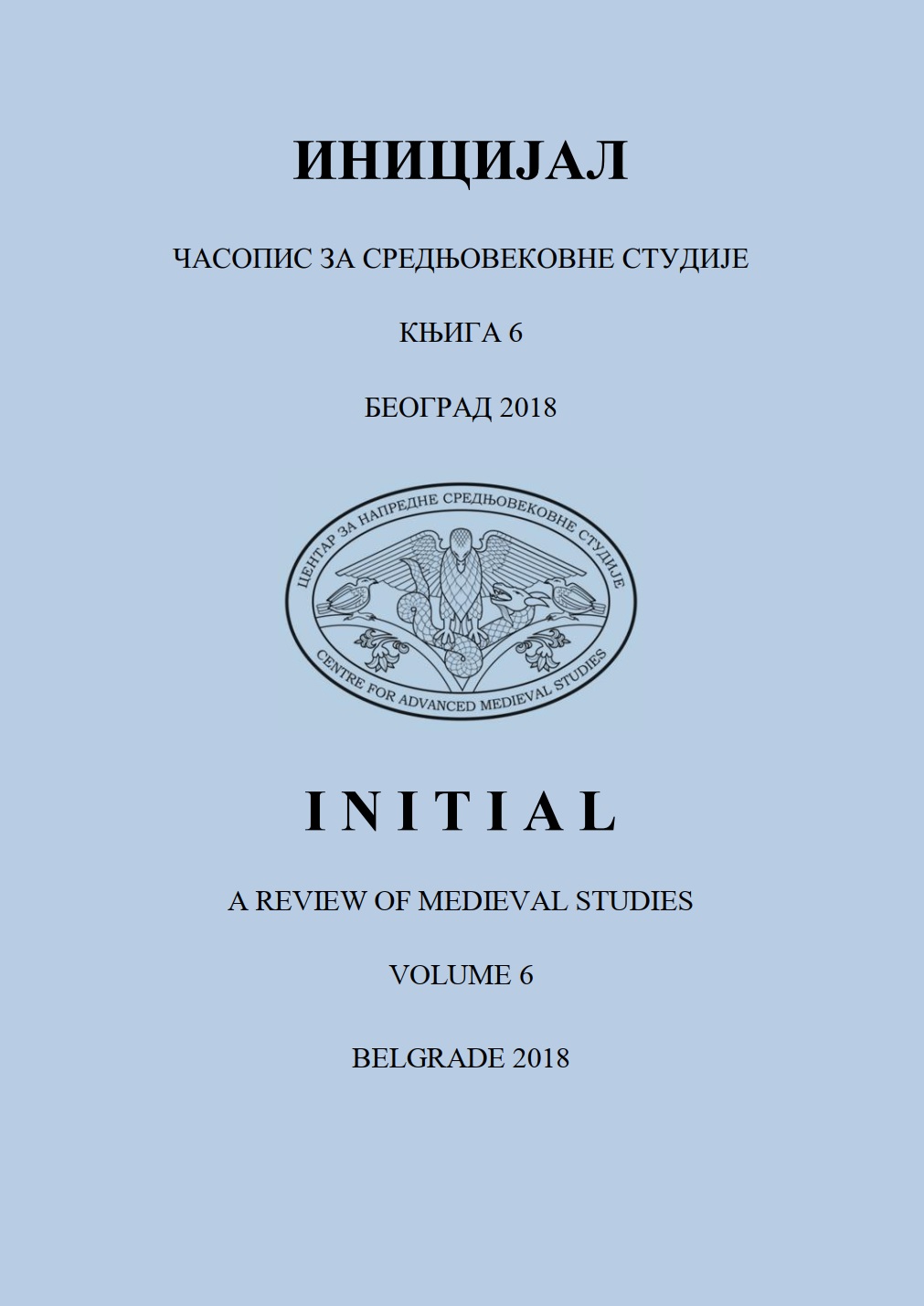Кьшандра госпогi̵а и Пебоушь богь – одјеци топосâ вилинске љубавнице и вилинских дарова у јужнословенском роману о Троји
Lady Kšandra аnd Pebuš the God – Echoes of the Fairy Mistress and Fairy Gifts Topoi in the South Slavic Roman de Troie
Author(s): Benjamin HekićSubject(s): History, Middle Ages
Published by: Центар за напредне средњовековне студије
Keywords: South Slavic Roman de Troie; Cassandra; Phoebus (Apollo); fairy mistress topos; fairy gifts; taboo (prohibition); dangerous gifts; narrative device
Summary/Abstract: What concerns us in this paper is an episode from the mediaeval prosaic narrative known as South Slavic Roman de Troie that tells the tale of Cassandra and Apollo. The story goes that the Trojan princess (in Slavic, Kšandra) met Apollo (he is called Pebuš, which is his byname Phoebus, in Slavic) at the banks of the river Simoeis, and the god promised her the gift of prophecy if she consented to make love to him but not to speak of it to anyone, lest her prophecies be believed by no one. Cassandra consented, had sex with the god, and when she went back to Troy she announced that she made love to Phoebus and immediately started to prophesize the fall of Troy, but no one believed her, since she broke her promise to Phoebus not to speak of their lovemaking. From Classical tradition we have several variants (Aeschylus, Apollodorus, Hyginus, etc.) of the story how Cassandra got her prophetic powers, but none of them contains the actual lovemaking; in all versions Cassandra remains chaste. Only the so-called First Vatican Mythographer knew that the deal between Cassandra and Phoebus was consummated, but then Apollo regretted the “trade” and cursed Cassandra so no one would believe her prophecies. It is quite interesting that the Cassandra episode is not present in any of the numerous western mediaeval Trojan narratives, but only in the South Slavic Roman de Troie. We argue that the pattern used in the Cassandra episode is an echo of the western mediaeval literary topos of the fairy mistress, by comparing this episode with western mediaeval literary works that incorporate the fairy mistress motif (primarily lais of Lanval and Graelant, Italian romance Pulzella Gaia, German romance Seifrid de Ardemant). These works introduce a fairy mistress (usually female, though there are examples where the fairy lover is male, e. g. Lai de Yonec) that promises to bestow her love and worldly treasures to the mortal man under one condition – he must not reveal his mistress’ identity and their affair, or he’ll lose everything that he gained and will never again see her. We believe that some elements of these topoi – fairy mistress, fairy gifts with taboo–prohibition of not revealing the relations with the fairy – were employed in the South Slavic Cassandra episode, with Phoebus taking the place of the fairy mistress, therefore reversing the gender aspect from the original fairy mistress topos. The gift of prophecy that Phoebus bestows constitutes a dangerous gift (these gifts can be rewarding, as long as the prohibition is observed, unlike negative gifts that bring no reward, only ruin). The elements of the fairy mistress topos in the Cassandra episode are used as a functional and effective narrative device that drives the plot of the story (Cassandra must not be believed if the story of the fall of Troy is to play out), which, in our opinion, proves that the elements of the fairy mistress topos were used intentionally by the author.
Journal: Иницијал. Часопис за средњовековне студије
- Issue Year: 2018
- Issue No: 6
- Page Range: 23-46
- Page Count: 24
- Language: Serbian

